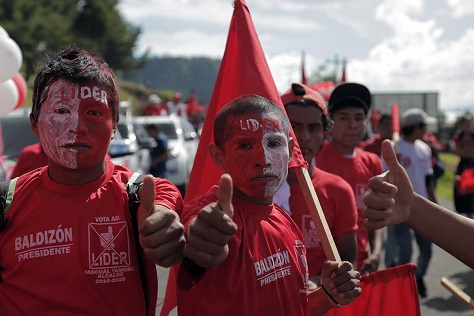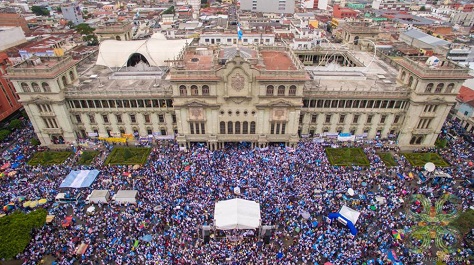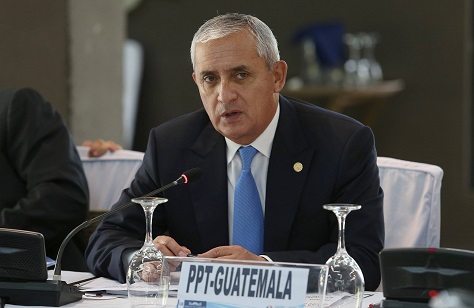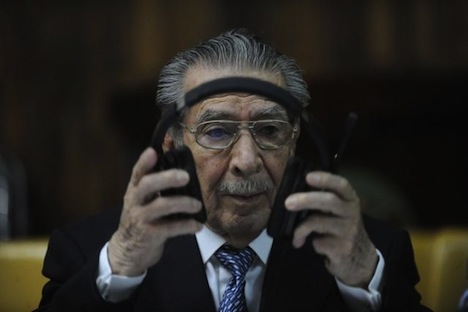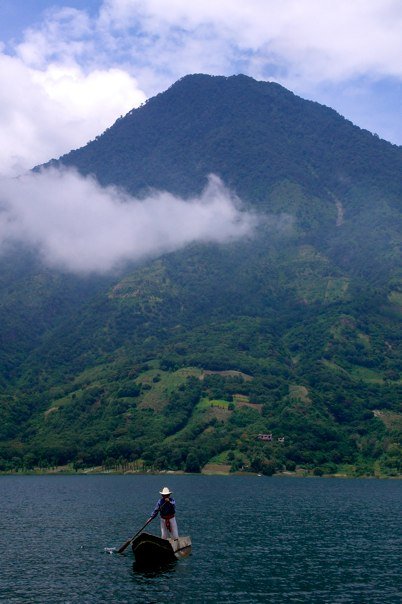Even before the final, official vote count is announced in Guatemala’s presidential election, we already know the results of the other major election that took place on September 6 — for the 158 members of the Guatemala Congreso.![]()
Notwithstanding the triumph of comedian and anti-politician Jimmy Morales in the first round of the presidential election, if Morales wins the scheduled October 25 runoff, he will face an immediately hostile and divided Congress.
* * * * *
RELATED: Torres edges Baldizón into Guatemalan runoff with Morales
RELATED: Guatemala lifts Pérez Molina’s immunity six days before vote to replace him
* * * * *
Though social democratic candidate and former first lady Sandra Torres appears to have bested conservative candidate Manuel Baldizón, a wealthy businessman and the 2011 presidential runner-up, it’s Baldizón’s party, Libertad Democrática Renovada (LIDER, Renewed Democratic Liberty), that won the greatest number of seats in the Congress.
Though LIDER won just 19% of the vote nationwide, it is entitled to 44 seats, making it the largest party in the next Guatemalan Congress. Moreover, despite the resignation and arrest of president Otto Pérez Molina just days before the election, his conservative Partido Patriota (PP, Patriotic Party), which has often partnered with LIDER over the Pérez Molina administration’s past four years, won about 9.5% of the vote and another 17 seats.
The Unidad Nacional de la Esperanza (UNE, National Unity of Hope), a party founded by Torres’s husband — technically former husband –Álvaro Colom, who preceded Pérez Molina as president, won nearly 15% of the vote, entitling it to the second-largest bloc of seats with 36. Todos, a centrist splinter group from the UNE founded three years ago by Felipe Alejos, won 16 seats in the Congress.
Morales’s own movement, the nationalist Frente de Convergencia Nacional (FCN, National Convergence Front), won just 11 seats and, nationally, just 8.76% of the parliamentary vote.
No other party managed to win more than seven seats in the Congress, though the Encuentro por Guatemala, a leftist party formed by Rigoberta Menchú, the K’iche’ Mayan activist and winner of the Nobel Peace Prize, to defend the interests of Guatemala’s indigenous population (and sometimes, however baffling, a political ally of the hard-right followers of Efraín Ríos Montt, who is facing charges of genocide for his role in massacres against indigenous Mayans in the early 1980s) won seven seats.
Since the end of Guatemala’s civil war and the country’s return to democracy, despite its corruption and imperfections, political parties are organized more around personalities and patronage networks than ideologies.
Though both the Guatemalan and international press have focused on the photo-finish race for the presidency, there are two important lessons in the congressional election results.
First, with such a divided Congress, Guatemala’s next president will not command a majority. Pérez Molina benefited from a casual alliance with LIDER, a symbiotic arrangement that gave Pérez Molina a working congressional majority (including, until two weeks ago, a bulwark against stripping him of presidential immunity) and Baldizón a patina of ‘inevitability’ to succeed Pérez Molina (though that obviously backfired given the tens of thousands of Guatemalans protesting politics as usual).
But the winner of the runoff will have to build a multi-party coalition to govern effectively. That’s especially true if he or she hopes to enact campaign finance reforms to reduce the role of corruption in politics from illicit contributions by business interests and drug traffickers alike. Morales has so far refused to make any electoral deals with either the UNE and LIDER, and that’s probably good politics. But he will nevertheless need to build a majority if he wants to accomplish anything if he wins the October runoff.
The second lesson is that the old guard is alive and well in Guatemalan politics. The FCN’s fifth-place finish indicates that Morales may well have trouble mobilizing an effective national campaign in the runoff. That’s true if, as now seems likely, his opponent will be Torres, but it will be even more so if, somehow, Baldizón manages to claw his way into the second round. LIDER, the UNE and the Patriotic Party together hold 97 seats, a supermajority of entrenched political elites who could effectively block reform.
For now, with just over 99% of all votes counted, Torres leads Baldizón by a margin of 19.79% to 19.64% (Morales won 23.85%) — that amounts to just 5,958 votes. Baldizón is already arguing that the vote is fraudulent, and there’s no sign that he will easily concede defeat. So it may be days, or even weeks, before it’s clear who Morales will face in the runoff. Even if he doesn’t make it to the runoff, Baldizón’s party will still be a force to be reckoned with in the years ahead.
